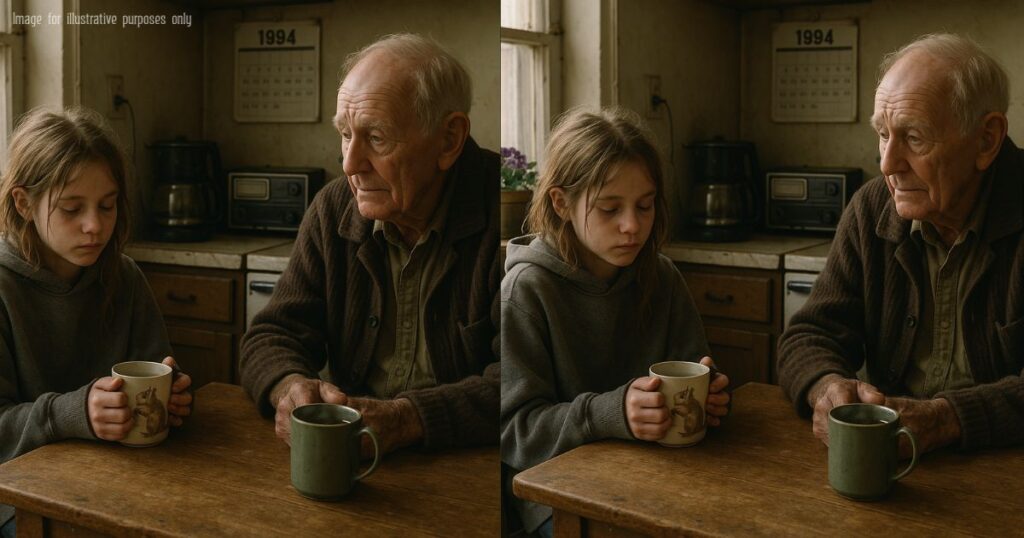A boy, no more than five, sat on the kitchen floor with dried blood on his lip. A bowl of cereal had spilled next to him, the milk frozen into the tile. His socks were wet. His fingers blue.
And the man on the couch — probably the stepdad — was passed out, mouth open, a bottle rolling on the carpet. His belt lay beside him.
Stanley had seen scenes like this before. In movies. In war. Never in real life. Never involving a child with Becca’s eyes.
She ran to the boy, scooped him up. “Eli, it’s me. It’s Becca.”
The boy blinked slowly, then buried his face into her sweatshirt.
Stanley looked at the man on the couch.
Then at the broken kitchen door.
He didn’t say a word.
Just turned, opened the truck door, and shouted, “Let’s go.”
They didn’t stop until they got back to his house. Becca was crying quietly in the back, her little brother wrapped in her coat. Stanley didn’t speak until they were inside, safe, warm.
He set a new mug on the table — a red one with a snowman on it. Poured warm cocoa instead of coffee. The boy didn’t say much. But he drank. That was enough.
That night, Becca whispered, “He’ll come looking for us.”
Stanley didn’t flinch. “Let him.”
The next morning, Stanley called someone he hadn’t spoken to in years — his old army buddy, Curtis. Curtis didn’t ask questions. Just gave him a name. A woman who “helps with this sort of thing.”
Her name was Joan. She worked out of a church basement three towns over. Wore orthopedic shoes and had eyes like steel and scripture. When she heard the story, she just nodded and said, “We’ll handle it.”
Stanley had never believed in angels.
He was starting to rethink that.
The kids stayed for a while.
Eli started sleeping through the night.
Becca started humming again.
Stanley found himself smiling more. Lorraine’s violets bloomed in the window.
The green mug never left its spot.
But some mornings now, it had company.
And the table didn’t feel quite so empty anymore.


